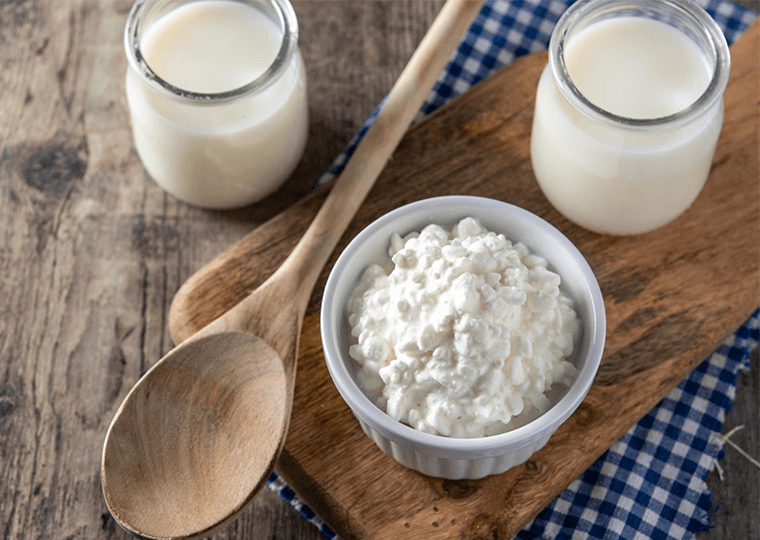Beyond Vitamins and Supplements: Supporting Immune Health Naturally
By:

Apex Hospitals
01-01-2024 5 Min Read

Amidst a sea of vitamins and immunity-boosting supplements claiming miracles, the reality is that supporting a robust immune system goes beyond a mere concoction of vitamins and minerals neatly packaged in pills or powders.
The immune system operates on a delicate balance—solid and sophisticated enough to combat various illnesses and infections, yet not so strong that it triggers unnecessary overreactions. Achieving this balance involves intricate controls influenced by numerous factors and responses to internal happenings within the body.
Indeed, it's a complex mechanism.
Whether facing a common cold, the flu, or the challenges posed by COVID-19, there are measures you can adopt to provide your immune system with the essentials for optimal function. Interestingly, none of these involve relying on supplements. It's time to explore a holistic approach beyond the allure of pills and powders, understanding that true immune support is more nuanced and multifaceted than a quick-fix solution. Here are some strategies to naturally support immune health.
1. Do moderate exercise

Engaging in physical activity goes beyond muscle-building and stress relief—it plays a crucial role in promoting overall health and bolstering a robust immune system. While prolonged, intense exercise can potentially suppress your immune system, engaging in moderate exercise can provide a beneficial boost. Research suggests that even a single session of moderate exercise can enhance the efficacy of vaccines, especially for individuals with compromised immune systems. Additionally, maintaining a regular, moderate exercise routine may contribute to reducing inflammation and support the regular regeneration of immune cells. Examples of moderate exercise encompass brisk walking, steady bicycling, jogging, swimming, and light hiking. (Related:Fitness Beyond the Gym: Fun Outdoor Activities for a Healthy Lifestyle). It is generally recommended that individuals aim for at least 150 minutes of moderate exercise per week to reap the immune-boosting benefits.
2. Get enough sleep

While sleep may not feel like an active process, numerous vital activities occur within your body during those restful moments when you're not awake. The connection between sleep and immunity is profound. Insufficient or poor-quality sleep is associated with an increased vulnerability to illnesses. A study involving 164 healthy adults revealed that those with less than 6 hours of sleep per night were more prone to catching a cold than those with 6 hours or more of sleep. Prioritizing sufficient rest can enhance your natural immunity, and during illness, increased sleep may aid the immune system in combating the disease more effectively.
For optimal health, adults should target seven or more hours of sleep each night, while teenagers require 8–10 hours, and younger children and infants benefit from up to 14 hours. To improve sleep quality, consider reducing screen time an hour before bedtime, as the blue light emitted from devices can disrupt the circadian rhythm, your body's natural wake-sleep cycle.
In addition, practicing good sleep hygiene, such as sleeping in a completely dark room or using a sleep mask, maintaining a consistent bedtime, and incorporating regular exercise, can contribute to overall improved sleep.
3. Eat more whole plant food.

Whole plant foods, such as fruits, vegetables, nuts, seeds, and legumes, constitute a nutritional powerhouse that can provide a significant advantage in combating harmful pathogens. Abundant in nutrients and antioxidants, these foods play a crucial role in reducing inflammation by neutralizing free radicals, unstable compounds that, when accumulated at high levels, contribute to inflammation in the body. Chronic inflammation is associated with various health conditions, including heart disease, Alzheimer’s, and certain cancers.
Moreover, the fibre content in plant foods nurtures your gut microbiome—the community of beneficial bacteria in your gut. A robust gut microbiome enhances immunity and acts as a defence against the entry of harmful pathogens through the digestive tract.
Adding to their health benefits, fruits and vegetables are rich sources of nutrients such as vitamin C, which is known to reduce the duration of common colds potentially. Incorporating these whole plant foods into your diet can be a proactive step towards fortifying your immune system and promoting overall well-being.
4. Stay Hydrated

Water serves crucial roles in your body, playing a vital part in supporting your immune system. Regardless of whether you're engaged in physical activity or not, the continuous loss of water occurs through breathing, urine, and bowel movements. It's essential to replenish the water you lose to support your immune system effectively. Stay hydrated to ensure your body has the water to function optimally.
While staying hydrated may not directly shield you from germs and viruses, preventing dehydration is paramount for overall health. Dehydration can lead to headaches and impair your well-being, including physical performance, focus, mood, digestion, and heart and kidney function. Such complications can heighten your vulnerability to illnesses.
Aim to avoid dehydration and consume enough fluids daily to maintain pale yellow urine. Water is preferred due to its lack of calories, additives, and sugar.
Although tea and juice contribute to hydration, it's advisable to moderate your intake of fruit juice and sweetened tea, given their high sugar content.
Generally, drink when you're thirsty and stop when the thirst subsides. Intense exercise, outdoor work, or a hot climate may necessitate increased fluid intake.
It's crucial to recognize that older adults may experience a diminished thirst sensation, making it imperative for them to drink regularly, even when they do not feel thirsty.
Regular hydration is essential to uphold overall health and well-being.
5. Include probiotics in your diet

Fermented foods are made of probiotics, which are good bacteria that live in your digestive system. Yoghurt, cabbage, kimchi, kefir, and natto are all in this group.
According to research, having a lot of gut bacteria can help your immune cells tell the difference between healthy cells and cells that could be dangerous.
6. Include healthy fats in your diet

By reducing inflammation, healthy fats like olive oil and salmon may enhance your body's immunological response to infections. Chronic inflammation can weaken your immune system, even though mild inflammation is a typical reaction to trauma or stress.
A lower incidence of chronic diseases like type 2 diabetes and heart disease has been associated with olive oil because of its potent anti-inflammatory properties. On top of that, it may aid your immune system in fighting off infectious germs and viruses due to its anti-inflammatory characteristics.
Salmon and chia seeds are good sources of omega-3 fatty acids, which also help reduce inflammation.
7. Limit Sugar Intake

Processed carbohydrates and added sugars are culprits in the epidemic of obesity.
Your risk of disease may also rise if you are overweight. Chronic diseases, including type 2 diabetes and heart disease, can be lowered by reducing inflammation and aiding weight loss, which can be achieved by limiting sugar intake.
An essential component of an immune-boosting diet is minimizing added sugars since obesity, type 2 diabetes, and heart disease can lower your immune system.
Make it a goal to consume no more than five percent of your calories from sugar each day. Assuming a 2,000-calorie diet, this would be 25 grams of sugar or around two teaspoons.
"Discover the power of optimal health! Explore our comprehensive healthcare services to boost your body's natural defences. Book an appointment now for expert guidance and personalized care. Your journey to wellness starts here!"
Related Articles
Connect With Us
Health In A Snap, Just One App.
KNOW MORE































































